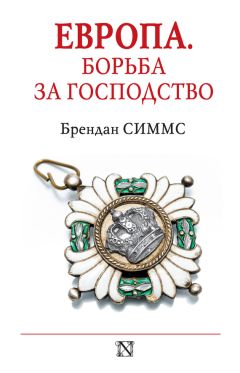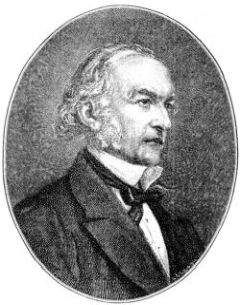89
О существовании публичной сферы до изобретения книгопечатания и значимости английских войн: Clementine Oliver, Parliament and political pamphleteering in fourteenth-century England (Woodbridge, 2010), p. 4 and passim.
Cited in Helen Castor, Blood and roses (London, 2004), p. 60.
G. L. Harriss, ‘The struggle for Calais: an aspect of the rivalry between Lancaster and York’, The English Historical Review, LXXV, 294 (1960), pp. 30–53, especially pp. 30–31.
Alexandra Gajda, ‘Debating war and peace in late Elizabethan England’, Historical Journal, 52 (2009), pp. 851–78.
Noel Malcolm, Reason of state, propaganda, and the Thirty Years’ War. An unknown translation by Thomas Hobbes (Oxford, 2007), especially pp. 74–8, and Robert von Friedeburg, ‘“Self-defence” and sovereignty: the reception and application of German political thought in England and Scotland, 1628–69’, History of Political Thought, 23 (2002), pp. 238–65.
Almut Höfert, Den feind beschreiben. Türkengefahr und europäisches Wissen über das Osmanische Reich 1450–1600 (Frankfurt, 2003), and Robert Schwoebel, The shadow of the crescent. The Renaissance image of the Turk (1453–1517) (Nieuwkoop, 1967).
Caspar Hirschi, Wettkampf der Nationen. Konstruktionen einer deutschen Ehrgemeinschaft an der Wende vom Mittelalter zur Neuzeit (Göttingen, 2005), pp. 12, 159, and passim.
Alfred Schröcker, Die deutsche Nation. Beobachtungen zur politischen Propaganda des ausgehenden 15. Jahrhunderts (Lübeck, 1974), pp. 116–45, and Joachim Whaley, Germany and the Holy Roman Empire, 1493–1806, 2 vols. (Oxford, 2011).
Elliott, ‘Foreign policy and domestic crisis’, in Elliott, Spain and its world, especially, pp. 118–19.
Sharon Kettering, Power and reputation at the court of Louis XIII. The career of Charles d’Albert, duc de Luynes (1578–1621) (Manchester and New York, 2008), pp. 217–42.
Jonathan Scott, England’s troubles. Seventeenth-century English political instability in European context (Cambridge, 2000), and John Reeve, ‘Britain or Europe? The context of Early Modern English history: political and cultural, economic and social, naval and military’, in Glenn Burgess (ed.), The new British history. Founding a modern state, 1603–1715 (London and New York, 1999), pp. 287–312.
‘Resolutions on religion drawn by a sub-committee of the House of Commons’, 24 February 1629, in S. R. Gardiner, Constitutional documents of the Puritan revolution, 3rd rev. edn (Oxford, 1906), p. 78. On the rise of Calvinist internationalism in England see David Trim, ‘Calvinist inter – nationalism and the shaping of Jacobean foreign policy’, in Timothy Wilks (ed.), Prince Henry revived. Image and exemplarity in Early Modern England (London, 2007), pp. 239–58.
Alfred Kohler, ‘Karl V, Ferdinand I und das Königreich Ungarn’, in Martina Fuchs, Teréz Oborni and Gábor Újváry (eds.), Kaiser Ferdinand I. Ein mitteleuropäischer Herrscher (Münster, 2005), pp. 3–12.
Quoted in Hans Sturmberger, ‘Türkengefahr und österreichische Staatlichkeit’, Südostdeutsches Archiv, X (1967), pp. 132–45.
Winfried Schulze, Reich und Türkengefahr im späten 16. Jahrhundert. Studien zu den politischen und gesellschaftlichen Auswirkungen einer aüsseren Bedrohung (Munich, 1978), especially pp. 270–97.
The declaration of 1575 is cited in Geoffrey Parker, The Dutch Revolt (Harmondsworth, 1990), p. 146. M. C. ’t Hart, The making of a bourgeois state. War, politics and finance during the Dutch revolt (Manchester, 1993), pp. 216–17, makes the point that war and state formation do not necessarily lead to absolutism.
Jane E. A. Dawson, ‘William Cecil and the British dimension of early Elizabethan foreign policy’, History, 74 (1989), pp. 196–216 (Cecil quotation p. 209). О восприятии Шотландии в “европейском” контексте: Roger A. Mason, ‘Scotland, Elizabethan England and the idea of Britain’, Transactions of the Royal Historical Society, Sixth Series, 14 (2004), pp. 279–93 (especially p. 285). Иакже: William Palmer, The problem of Ireland in Tudor foreign policy 1485–1603 (Woodbridge, 1995), p. 79 and passim, and Brendan Bradshaw and John Morrill (eds.), The British problem, c. 1534–1707. State formation in the Atlantic archipelago (Basingstoke, 1996).
Philip’s representative’s comments to the Moriscos are cited in Lynch, Spain under the Habsburgs, p. 227.
Hess, ‘The Moriscos: an Ottoman fifth column’, pp. 1–25.
Már Jónsson, ‘The expulsion of the Moriscos from Spain in 1609–1614: the destruction of an Islamic periphery’, Journal of Global History, 2 (2007), pp. 195–212, stresses the security dimension, especially p. 203.
О религиозной терпимости и мобилизации против османов: M. A. Chisholm, ‘The Religionspolitik of Emperor Ferdinand I (1521–1564)’, European History Quarterly, 38, 4 (2008), p. 566.
Niccolò Machiavelli, The discourses, ed. Bernard Crick (Harmondsworth, 1970), with quotations (in order of appearance) on pp. 98, 100–102, 152, 168, 300, 252, 255, 130, 124, 259 and 122–3. See also Mikael Hörnqvist, Machiavelli and empire (Cambridge, 2004).
Catherine Nall, ‘Perceptions of financial mismanagement and the English diagnosis of defeat’. Благодарю д-ра Нолл за возможность ознакомиться с неопубликованной рукописью.
Steven Gunn, David Grummitt and Hans Cools, War, state, and society in England and the Netherlands, 1477–1559 (Oxford, 2007), pp. 329–34.
Wallace MacCaffrey, ‘Parliament and foreign policy’, in D. M. Dean and N. L. Jones (eds.), The parliaments of Elizabethan England (Oxford, 1990), pp. 65–90, especially pp. 65–7.
О взаимосвязи сильной монархии и успехов внешней политики: Emmanuel Le Roy Ladurie, The royal French state, 1460–1610, trans. Judith Vale (Oxford and Cambridge, Mass., 1994). See also Steven Gunn, ‘Politic history, New Monarchy and state formation: Henry VII in European perspective’, Historical Research, 82 (2009), pp. 380–92.
John Guy, ‘The French king’s council, 1483–1526’, in Ralph A. Griffiths and James Sherborne (eds.), Kings and nobles in the later Middle Ages (Gloucester and New York), pp. 274–87. See also Emmanuel Le Roy Ladurie, Royal French state, especially pp. 54–78.
Lynch, Spain under the Habsburgs, pp. 50–51, 59, 63–4, 92–3 and 97.
Quoted in James D. Tracy, The founding of the Dutch Republic. War, finance, and politics in Holland, 1572–1588 (Oxford, 2008), p. 26.
The Middle Volga peasants are cited in Valerie Kivelson, ‘Muscovite “Citizenship”: rights without freedom’, Journal of Modern History, 74, 3 (2002), pp. 465–89 (citation p. 474). See also Hans-Joachim Torke, Die staatsbed – ingte Gesellschaft im Moskauer Reich. Zar und Zemlja in der altrussischen Herrschaftsverfassung, 1613–1689 (Leiden, 1974).
George William is cited in Christopher Clark, Iron kingdom. The rise and downfall of Prussia, 1600–1947 (London, 2006), p. 26.
A. S. Piccolomini, Secret memoirs of a Renaissance pope. The Commentaries of Aeneas Sylvius Piccolomini, Pius II. An abridgement, trans. Florence A. Gragg and ed. Leona C. Gabel (London, 1988), p. 62. I thank Anastasia Knox for this reference.
Quoted in Karl Nehring, Matthias Corvinus, Kaiser Friedrich III und das Reich. Zum hunyadisch-habsburgischen Gegensatz im Donauerraum (Munich, 1975), p. 130.
Gerhard Benecke, Maximilian I 1459–1519. An analytical biography (London, Boston, Melbourne and Henley, 1982), pp. 141–6.
Peter Schmid, Der gemeine Pfennig von 1495. Vorgeschichte und Entstehung, verfassungsgeschichtliche, politische und nanzielle Bedeu-tung (Göttingen, 1989).
Whaley, Germany and the Holy Roman Empire, pp. 67–80 and passim.
Cited in Branka Magaš, Croatia through history (London, 2008), p. 90. On the initial response of the German Diet to the Ottoman threat see Stephen A. Fischer-Galati, Ottoman imperialism and German Protestantism, 1521–1555 (New York, 1972 repr.), pp. 10–17. I am very grateful to Miss Andrea Fröhlich for sharing her expertise on early sixteenth-century Hungary with me.
Thomas Nicklas, Um Macht und Einheit des Reiches. Konzeption und Wirklichkeit der Politik bei Lazarus von Schwendi (1522–1583) (Husum, 1995), with quotations on pp. 113–14, 116 and 121.
Quoted in Weston F. Cook, The hundred years war for Morocco. Gunpowder and the military revolution in the Early Modern Muslim world (Boulder, San Francisco and Oxford, 1994), p. 83.
Felipe Fernández-Armesto, Columbus (Oxford, 1991), pp. 46 and 153–5.
Abbas Hamdani, ‘Columbus and the recovery of Jerusalem’, Journal of the American Oriental Society, 99, 1 (Jan. – Mar. 1979), pp. 39–48 (p. 43). Реакция турок: Andrew Hess, ‘The evolution of the Ottoman seaborne empire in the age of the oceanic discoveries, 1453–1525’, American Historical Review, 75, 7 (1970), pp. 1892–1919, especially pp. 1894 and 1899 (encirclement), 1905 and 1908 (Indian Ocean).
Robert Finlay, ‘Crisis and crusade in the Mediterranean: Venice, Portugal, and the Cape Route to India (1498–1509)’, in Robert Finlay, Venice besieged. Politics and diplomacy in the Italian wars 1494–1534 (Aldershot, 2008), pp. 45–90.
Hugh Thomas, Rivers of gold. The rise of the Spanish Empire (London and New York, 2003), pp. 540–54.
Patrick Karl O’Brien and Leandro Prados de la Escosura, ‘Balance sheets for the acquisition, retention and loss of European empires overseas’, Itinerario, XXIIII (1999), p. 28 and passim. The quotation is in Lynch, Spain under the Habsburgs, p. 38.
Hans-Joachim König, ‘Plus ultra – Ein Weltreichs – und Eroberungsprogramm? Amerika und Europa in politischen Vorstellungen im Spanien Karls V’, in Alfred Kohler, Barbara Haider and Christine Ottner (eds.), Karl V 1500–1558. Neue Perspektiven seiner Herrschaft in Europa und Übersee (Vienna, 2002), pp. 197–222, especially pp. 203–4.
Вопреки мнению: Hugh Thomas, The golden empire. Spain, Charles V and the creation of America (New York, 2011), pp. 362–3, 370–72 and passim (figures for distribution of gold p. 511).
The English parliamentarians are cited in Thomas Cogswell, The Blessed revolution. English politics and the coming of war, 1621–1624 (Cambridge, 1989), pp. 72–3. Rudyerd is cited in J. H. Elliott, The Old World and the New 1492–1650 (Cambridge, 1992) pp. 90–91.
О важности соперничества за торговлю табаком: homas Cogswell, ‘“In the power of the state”: Mr Anys’s project and the tobacco colonies, 1626–1628’, The English Historical Review, CXX–III, 500 (2008), pp. 35–64.
Susan Hardman Moore, Pilgrims. New World settlers and the call of home (New Haven and London, 2007).
О важности Пфальца, протестантстве и христианской Европе: Francis J. Bremer, Puritan crisis. New England and the English Civil Wars, 1630–1670 (New York and London, 1989), pp. 27–32, 36–42, 45–50, 55–60, 63–4, 84–7 and 237–9 (quotations pp. 63 and 137). Perry Miller, The New England mind. From colony to province (Harvard, 1953), p. 25, подчеркивает, что холм Уинтропа должны были видеть в Европе. Winthrop on Bohemia is cited in Francis J. Bremer, John Winthrop. America’s forgotten founding father (New York and Oxford, 2003), p. 137.
Christoph Kampmann, ‘Peace impossible? The Holy Roman Empire and the European state system in the seventeenth century’, in Olaf Asbach and Peter Schröder (eds.), War, the state and international law in seventeenth-century Europe (Farnham, 2010), pp. 197–210.
Michael Rohrschneider, Der gescheiterte Frieden von Münster. Spaniens Ringen mit Frankreich auf dem Westfälischen Friedenskongress (1643–1649) (Münster, 2007), pp. 90 and 307–11.
Karsten Ruppert, Die kaiserliche Politik auf dem westfälischen Friedenskongress (1643–1648) (Münster, 1979), pp. 39–42 and 115–16.
Quoted in Andreas Osiander, The state system of Europe, 1640–1990. Peacemaking and the conditions of international stability (Oxford, 1994), p. 74.
Lothar Höbelt, Ferdinand III. Friedenskaiser wider Willen (Graz, 2008), pp. 224–9.
K. J. Holsti’s hugely influential International politics. A framework for analysis, 4th edn (Englewood Cliffs, 1983), pp. 4 and 83–4. For a more recent enunciation of this view see Thomas G. Weiss, Humanitarian intervention. Ideas in action (Cambridge, 2007), p. 14.
Article 8. The text of the treaty can be found in Clive Parry (ed.), The consolidated treaty series (New York, 1969), pp. 198–356.
Joachim Whaley, ‘A tolerant society? Religious toleration in the Holy Roman Empire, 1648–1806’, in Ole Grell and Roy Porter (eds.), Toleration in Enlightenment Europe (Cambridge, 2000), pp. 175–95, especially pp. 176–7.





